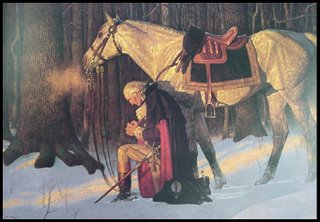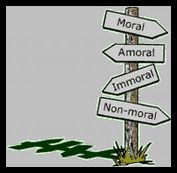
“Their minds are filled with big ideas, images and distorted facts.”
- Bob Dylan – “Idiot Wind” (1975)
Nancy and I got back from our getaway in Kansas City just in time to get ourselves in the middle of one of those one in a hundred years events. At about five o’clock the skies opened and the waters descended. By five-fifteen the city was inundated with water. In that short time at least three inches of rain fell. The water ran about a foot or a foot and half deep in the downtown area and just about every intersection in town, particularly those in low lying areas, was swamped. Fortunately for us, the sump pump in our basement was up to the task. This morning as I made my morning rounds I saw the results of the flash flooding. Downtown merchants were busy cleaning up, pushing the debris, mud, and water from their businesses. Some streets were still blocked off. One of the fortunate by-products of the flood was that the usual array of fast food and candy wrappers, beer bottles, and the assorted trash that usually litters Emporia’s downtown streets after a night of merry-making had been swept away in all the water. About all that was left on the streets and sidewalks were bits of gravel, twigs, and leaves. It may not have looked especially pretty, but at least the stuff left by the storm was bio-degradable.
Far from Emporia, in Washington D.C., there has been a torrent of indignation lately. It seems that one congressman, William Jefferson, got caught with his hand in a mighty big cookie jar. Sometime last year the good congressman appears to have taken a sizeable bribe for legislative services rendered. The FBI, in a search authorized by warrant, found ninety thousand big ones in his home, on ice. Unlike those of us living in small towns who lack social and political sophistication, Jefferson had wrapped the incriminating dough in tin foil and tucked away in his freezer. Even for us red-staters it looked more than a bit suspicious. If it had been me doing the searching I’d have been wondering what all that money was doing next to the leg of lamb or the broccoli florets. Hadn’t Jefferson heard? Out here we put that kind of incriminating stuff in mattresses until the heat blows over, then deposit it into our savings accounts at four percent. If only he’d sought our counsel.
Not content to let a good deed go unpunished, Dennis Hastert and Nancy Pelosi came to the good congressman’s rescue, claiming that the FBI had overstepped its bounds. “Congressional privilege,” they screamed. “We congress-folks have our rights.” It was all rather cartoonish, with Hastert and Pelosi becoming central figures. Hastert’s been looking like Elmer Fudd on the hunt ever since the whole thing started (“Dern FBI”) and Pelosi’s been just perfectly typecast as Cruella DeVille.
Is there something they’ve put in the water? Do Americans outside the Beltway have “kick me hard signs” planted on their backs? Do they really think we’re so stupid that we’d all come to the aid of this den of thieves? The answer to the first question is “I hope not.” The answer to the second is “No!” The answer to the third is, “Apparently Cruella and Elmer think so.”
The more they’ve protested, the more suspicious I’ve gotten. In fact, I think I like the idea of the FBI rooting around. Maybe it’ll keep them on their toes. Maybe they’ll find more than a few rutabagas in Hastert’s or Pelosi’s fridges.
Speaking of privacy and crackpot theories, back here on the home front Rita Stark, Emporia’s citizen extraordinaire, is at it again. She sent a letter to the Gazette last week, complete with a list of recommended summer reading for Emporia’s Neanderthals. I’d already read two, am currently reading a third, but am steadfastly refusing to read her highest recommendation – Thierry Meyssan’s “9-11- The Big Lie.” I’d read a review of the book in Spiegel ONLINE a long time ago and decided to forego it, in the same way I resist the temptation to read the National Enquirer when I’m checking out at the grocery store. I don’t need to worry myself with stories of alien babies or sightings of Elvis in Missoula. And, I don’t need to trouble myself when fruitcakes like Meyssan claim that 9-11 was actually a huge U.S. government conspiracy. I’ve heard it all before, haven’t you? Jews were told not to report to work on September 11, 2001. It was U.S. missiles, and not hijacked passenger planes, that hit the Pentagon that day. It was all a government plot to keep the rest of us in line. It all makes me wonder, in hindsight, whether or not Rita and Thierry work on the staffs of Hastert or Pelosi.
A day or so after I read Stark’s letter I fired off the following response to the Gazette:
I’m almost two-thirds of the way though Rita Stark’s summer reading list. I’ve already completed Orwell’s “1984” and Shirer’s “The Rise and Fall of the Third Reich.” Right now I’m working on “American Theocracy.”
I was quite impressed with Orwell’s and Shirer’s work. I can’t say the same for Phillips’. While it claims to be factual, so far it reads more like pulp fiction. The notion that a cabal of Texas oil men and Christian fundamentalists is trying to take over the world is more than a bit hackneyed.
I don’t intend to put Meyssan’s “9-11 – The Big Lie” on my must read list, especially after having read Spiegel ONLINE’s September, 2003 cover story (“The Panoply of the Absurd”) about Messyan and his fellow 9-11 conspiracy theorists. To be honest, Ms. Stark, I’m really tired of hearing how New York’s Jews were told to stay home on September 11th, 2001. I’m tired of hearing it was all a Jewish conspiracy. I’m tired of hearing it was a government plot. And, I’m tired of hearing that it was actually U.S. missiles, and not hijacked passenger planes, which took down the World Trade Center towers.
To paraphrase the Immortal Bard, Ms. Stark, “Methinks thou doth protest too much.” While tales of Texas oil men, Christian fundamentalists, government assassins, or Jewish conspiracies can make fiction seem like fact, they can also divert our attention from the high road we all ought to be taking these days.
These are serious times and the issues that face us all are momentous. They deserve better than to be trivialized. They merit our attention, discussion, and national consensus, not sensationalism. We can, and should, do better!
So there you have it. Emporia got caught up in a flash flood last night. Denny and Nancy got themselves caught up in a flood of stupidity last week, as did Rita Stark. Seeing it all played out, I wonder where and when the next bucket of rain’s gonna’ fall. A gullywasher over the Capitol wouldn’t be a bad place to start. We need something to clean the place out.
Technorati tags for this post:
Cruella DeVille
Elmer Fudd
Dennis Hastert
William Jefferson
Nancy Pelosi





